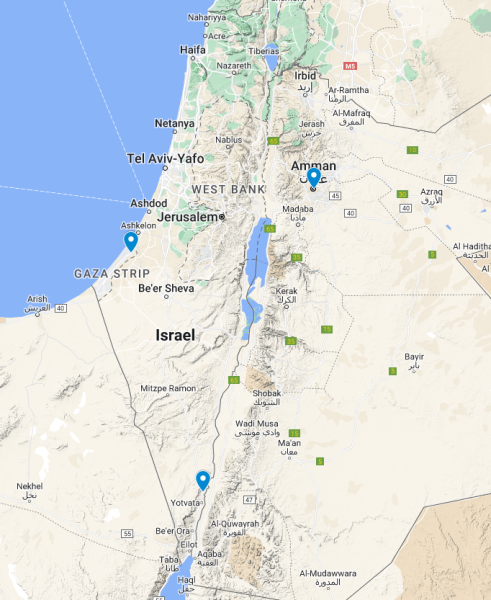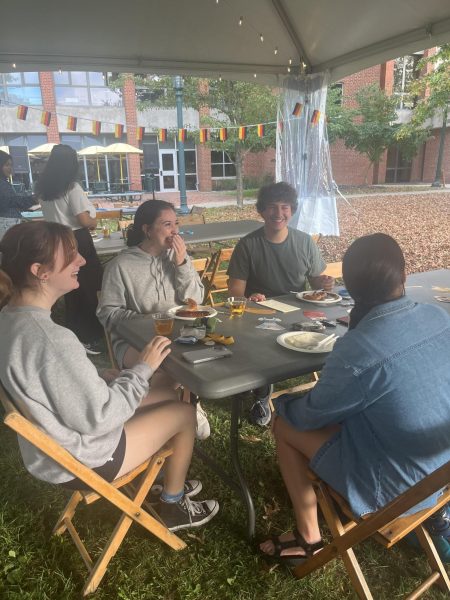Repression of Myanmar anti-coup protests intensifies
Repression of protests against a military-backed coup in Myanmar have been escalating over the past months, according to reports from the Assistance Association for Political Prisoners.
Since the coup occurred on Feb. 1, AAPP reports that 598 people have been killed by the military and 2,728 have been arrested or detained. Despite this, there seems to be little sign of protests letting up in the face of the violent repression.
“That (Myanmar) was able to make any progress this past decade toward democracy was a near miracle, I’m not sure anyone will be able to control what comes next,” said Thant Myint-U, a historian of Myanmar, in an interview with the New York Times.
The coup happened due to accusations of a fraudulent election in November, in which the military backed party lost decisively. The National League for Democracy won a large majority of seats in these elections and the military proxy party did poorly, according to the New York Times.
This led to the declaration of a state of emergency and the arrest of many of the leaders, including the leader Aung San Suu Kyi, of the NLD. In response, protests erupted against the coup.
These protests are considered the largest since the 2007 “Saffron Revolution,” which first put the country on the path of increased democracy. The Guardian reported that more than 100,000 people were protesting in mid-February.
The protestors have also taken to using the three-finger salute from the film series “The Hunger Games.” The symbol was first used in efforts against a coup in Thailand, but it has spread to Myanmar and is being used as an anti-coup symbol, according to The Guardian.
The Guardian has also reported use of popular memes during the protests. These include Pepe the Frog, which has become a popular alt-right, racist, and anti-semetic meme in the United States, but is now being used to promote pro-democracy in Myanmar. Additionally, the doge memes have been used.
These pop culture symbols are a result of a generation having access to internet and memes associated with internet culture, according to the BBC. Additionally, they are intended to help garner attention to the purpose behind the protests, and gain a more international audience.
The new government, now led by military commander-in-chief Min Aung Hlaing, has cut off both mobile data based internet and wireless broadband internet in the country. At the onset of protests, certain websites, such as Facebook, were also blocked by the new authorities.
Most recently, the government targeted celebrities who had offered support for the protests, arresting comedians, journalists and others.
There has also been an international response to the crackdown on the protestors. The European Union, United States and United Kingdom have all imposed targeted sanctions against leaders of the coup, freezes on Maynmar’s access to foreign assets and sanctions against specific military divisions.
According to the BBC, there has also been international resistance to sanctions from nations closer to Myanmar, specifically the Association of Southeast Asian Nations. There is also potential hesistiancy of nations like the U.S. to pull investments in fear of competition from other global powers.
The coup happened after years of continuing democraziation of the government after previous military rule. The process began in 2011, and the first election was held in 2015.
A feature of the current wave of civil unrest is a massive strike movement meant to economically protest the coup. Channel News Asia has reported that the banking and textile industries are particularly affected, and prices are rising as products run out. This is affecting average citizens, in which the military has access to resources through its ownership of oil and gas fields.
The future for Myanmar seems uncertain. The military has promised elections after the state of emergency is revoked, but many feel that there have been large steps backwards in Myanmar. Additionally, Myanmar has many different ethnic groups, with some having their own militia groups.
There is also a history of the violent suppression of minority ethnic groups within the country. In 2016 and 2017, there was evidence that the Myanmar military comitted genocide against he Rohingya ethnic group.
More recently, there have been airstrikes against the Karen ethnic minority, according to Time. This has caused thousands to flee, and fears of a refugee crisis.
In an opinion piece published in The Guardian, Simon Tisdall draws parallels between Myanmar today and Syria at the beginning of its Civil War.
For the ongoing protests, there are many who feel that continued military rule is untenable, and will lead to a worse future.
“Maybe 100 people or 1,000 people could die, but our whole future depends on this moment, If we don’t win, we will be a slave to the military forever,” said a 28 year old protestor in an interview with Al Jazeera.
Those who are engaging in economic protests also seem to feel that this is an all-or-nothing fight.
“We have nothing to lose, as a basic laborer, we only have one choice. It’s to fight back against the junta,” said a striking garment worker in an interview with the New York Times.








